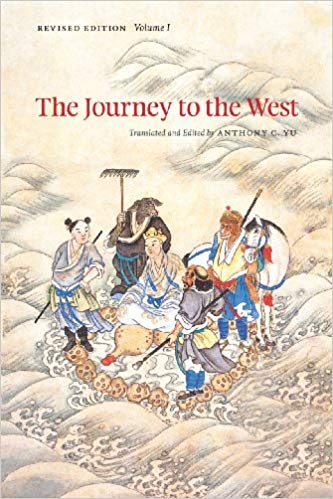Review of Journey to the West
February 5, 2020
“The Journey to the West” is an old Chinese allegory about the path to enlightenment. It was written in the 16th century during the Ming Dynasty by an author named Wu Cheng’en. “Journey to the West” is an extremely long read. The translation I read was about 1,000 pages, but it is funny, satirical, and a wonderful read all around.
There are quite a few instances that show that humanity’s sense of humor has not changed at all. For example, the first thing one of the characters does is activate his laser eyes by accident and almost hit heaven. When the same character reaches the end of the universe, he graffitis on the 5 pillars “Sun Wukong was here.”
The book is about a Buddist monk named Xuanzang who goes on a journey with four others through the western regions to obtain Buddist “sutras” or sacred texts that can absolve any sin. He gathers really powerful allies, gets kidnapped a lot and gets quite a bit of help from gods and bodhisattvas.
I really enjoyed this book. The characters are relatable, it’s fun to analyze and the adventures are funny. The language is a bit complicated, but very pretty, because most of the descriptions of characters and locations are described through poetry. It is also pretty slow-paced, and there are a lot of idle moments and periods where the story is put on hold for a bit to go through character histories, but the actions scenes are worth it.
The whole allegory part is super fascinating. How the characters and the journey symbolize the path to Buddist enlightenment, and the different arcs of the story are different struggles in the way. The characters show the different aspects of the mentality of the person, and how they interact with each other in response to certain events. For example, the Monkey King is the mind, the one who fights the different challenges that come in the way of the crew. Or the horse can be taken as the will, because he is the transportation.
I highly recommend this book if you are in the mood for a long, somewhat hard read.











